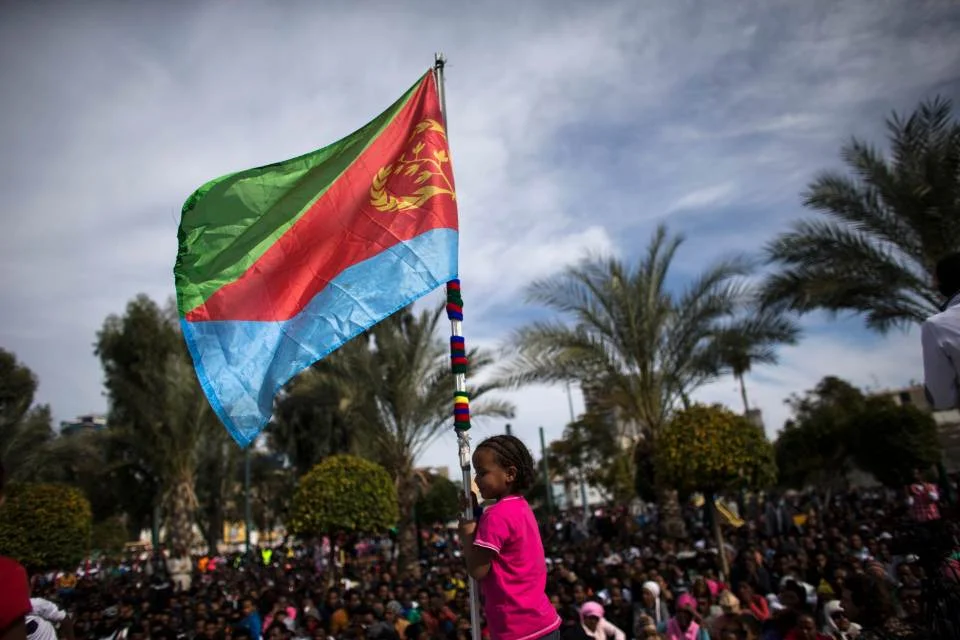Eritrea: A country with several restrictions to freedom of religion or belief
A letter signed and sent by 30 human rights organizations from around the world to the 41st Session of the UN Human Rights Council on Eritrea in March 2019 pointed to, amongst others, severe restrictions Eritreans face in exercising their freedom to religion or belief in the country.
President Isaias Afwerki, leader of the only political party permitted in the country since 1993 vigorously suppresses individual human rights of, which exercising the right to freedom of religion or belief is met with exceptional repression.
Though the Eritrean Constitution guarantees the right to freedom of religion or belief, till date, the Constitution has not been applied in practice since its ratification in 1997. Thus, leaving many Eritreans in a vulnerable position when exercising their right to freedom to religion or belief.
The Eritrean government officially recognizes only four religions: the Eritrean Orthodox Church, Sunni Islam, the Roman Catholic Church and the Evangelical Church of Eritrea. It deems all other religions and beliefs as illegal in the country. Nonetheless, according to United States Commission on International Religious Freedom’s (USCIRF) Annual Report 2019, ‘even the officially recognized groups are unable to practice their faith freely because the Eritrean government regulates and interferes in their affairs’.
In addition, the Eritrean government also uses difficult registration requirements as a method to limit freedom of religion or belief and arbitrarily detains and tortures religious prisoners of conscience amongst others. USCIRF has designated Eritrea as a ‘country of particular concern’ (CPC).
‘IPPFoRB condemns the ongoing and egregious violations against freedom of religion or belief in Eritrea. Credible reports show that individuals imprisoned for exercising their freedom of religion or belief are often beaten and tortured by security officials.’, said David Anderson, MP Canada and Chair of Steering Committee of IPPFoRB.
Recently, the BBC reported that over 30 Pentecostal Christians were rounded up and detained while praying in three different locations in the nation’s capital city of Asmara.
Anderson adds, ‘Incidents like this highlight a divide between the domestic judicial system and international standards of human rights and due process.’
What HAS IPPFORB DONE IN ERITREA?
In July 2018, there came the historical moment when Ethiopian Prime Minister Abiy Ahmed and Eritrean President Isaias Afwerki signed a peace agreement, bringing to an end one of Africa’s long-running conflicts.
IPPFoRB together with our partner, the African Parliamentarians Association for Human Rights (AfriPAHR) saw this to be a unique opportunity to encourage Ethiopian authorities and parliamentarians to influence the situation of freedom of religion or belief in Eritrea.
Thus, in November 2018, four members of AfriPAHR organized a mission to Addis Ababa where they met with the Standing Committee for International Relations and discussed a wide range of FoRB issues in both Eritrea and Ethiopia, including the imprisoned Jehovah’s Witnesses, the prohibition of worship by unregistered churches that violates the rights of believers and religious communities under the Article 18, and appealed to the Ethiopian parliamentarians to promote freedom of religion or belief themselves. The delegation also used this opportunity to introduce AfriPAHR to the AU Human Rights Commission.
‘In June 2018, Eritrea released 30 political prisoners as part of the peace agreement. This provided us the right moment to engage with parliamentarians in the region. Amongst our many recommendations, we encouraged Ethiopian parliamentarians to establish a parliamentary group on freedom of religion or belief and influence Eritrean counterparts to release religious prisoners of conscience in the same way they convinced Eritrea to release political prisoners.’, said Nqabayomzi Kwankwa, MP South Africa and Chair of Steering Committee of AfriPAHR.
Additionally, in the past, we have also sent two advocacy letters signed by over 50 parliamentarians and legislators from 40 different countries from around the world to President Afwerki’s office calling him to improve the situation of freedom of religion or belief in Eritrea, especially the harsh conditions religious prisoners of conscience face in the country.
Under IPPFoRB’s Religious Prisoner of Conscience project (together with USCIRF), we encourage our global network of parliamentarians to advocate on behalf of religious prisoners of conscience and call upon authorities to release them. Patriarch Abune Antonios from the Eritrean Orthodox Tewhado Church is one of the many prisoners of conscience whose immediate and unconditional freedom we advocate for.
Want to adopt a Religious PRISONER OF CONSCIENCE (RPOC)?
If you are parliamentarian who is part of the IPPFoRB network and wish to advocate for one of the many religious prisoners of conscience, please get in touch with us by emailing us at contact@ippforb.com.





